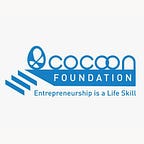Why Is There a Skills Gap in the Current Job Market?
The idea that technologies and ideas are racing ahead and that our skills are left behind is coined “skill mismatching”, leaving a “skills gap” in the job market today. Some observers even think that with time the skills gap can accelerate into a “skills abyss”. According to BCG, it is expected that 27% of the available jobs will be in roles that don’t exist yet. While it appears that we are running against the clock, it’s important to understand how this came about and how we can work our way around it.
What is the skills gap?
The skills gap refers to the mismatch between the employees’ knowledge and the tasks for which they are needed. Expanding to the bigger picture, it is the gaps between the needs of business and the goals of current education systems.
Why does it exist now?
The skills gap exists because new technologies require new skills that schools don’t teach or that the labour markets don’t offer. Employers would therefore find it difficult to find suitable candidates who can make the most out of these new technologies.
The shift of our economy that focuses on manufacturing goods to a knowledge economy that treasures innovation means that work is no longer about routine tasks anymore. However, the current model of education is linear where phases of schooling are followed by work. University-bound students are trained to accomplish well during standardized testing, to acquire specialised knowledge in segmented areas of knowledge. They are rewarded for acquiring perishable knowledge which does not encourage experimentation which is often what is needed to explore frontiers beyond the known.
Why is the skills gap a concern?
On the surface for employers, this means a loss of productivity, a higher rate of staff turnover, lower levels of morale, lower quality of work, an inability to expand the business, and a loss of revenue. For the individual, it leads to uncertainty about income, their future career prospects, and career development. More importantly, the disparity of resources and what could be accomplished hinders global and societal growth.
How can we better equip ourselves for the future?
“Technology skills depreciate while human skills appreciate. ” Heather E. McGowan
What the widening skills gap with shortened time has shown us that the focus should be on developing knowledge that is durable, rather than skills that are perishable. The transition to a knowledge economy means that a workforce doesn’t simply require highly developed digital skills for example, but analytical problem-solving skills, adaptability, and how to communicate. The education system will need to find new ways to accommodate the training of future employees and their continually changing requirements.
With a high turnover of innovations, the importance of learning on the job cannot be pinpointed enough. But this shouldn’t simply be limited to the responsibilities of individuals to adapt to these changes on their own. It is a collective effort from workers and companies to expand their ability to upskill and reskill. This difficulty of the fast-paced need for new skills creates opportunities for both employers and employees to work together to make the most out of new challenges for the benefit of both to make innovative progress in society.
The importance of entrepreneurship education is highly tied to closening the skills gap. Entrepreneurship teaches all the key soft skills that supplement technical know-how — being flexible with challenges, resilient to multiple failures, striking a balance between delegation and teamwork. Our education systems should also act as a mediator among businesses, the government, and individuals so that employees are equipped with lifelong training to help align with ever-changing requirements and job expectations.
Innovation won’t simply just be about reskilling to accommodate technical changes, but instead, requires a whole new way of rethinking in order to challenge and streamline solutions alongside increasing complex knowledge. Investing in human potential and ways of learning will not only narrow the skills gap that we are witnessing, but it will also provide the greatest return for businesses and society.
